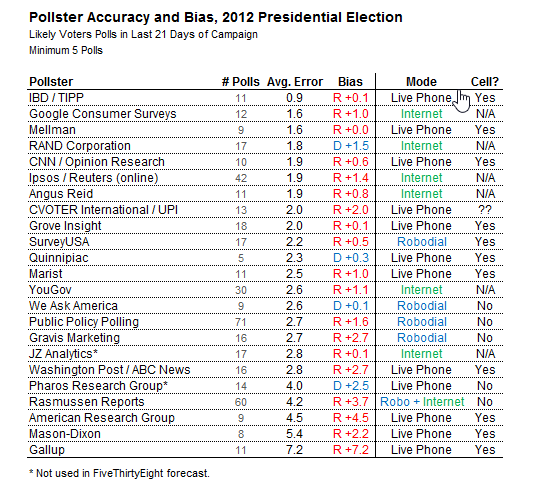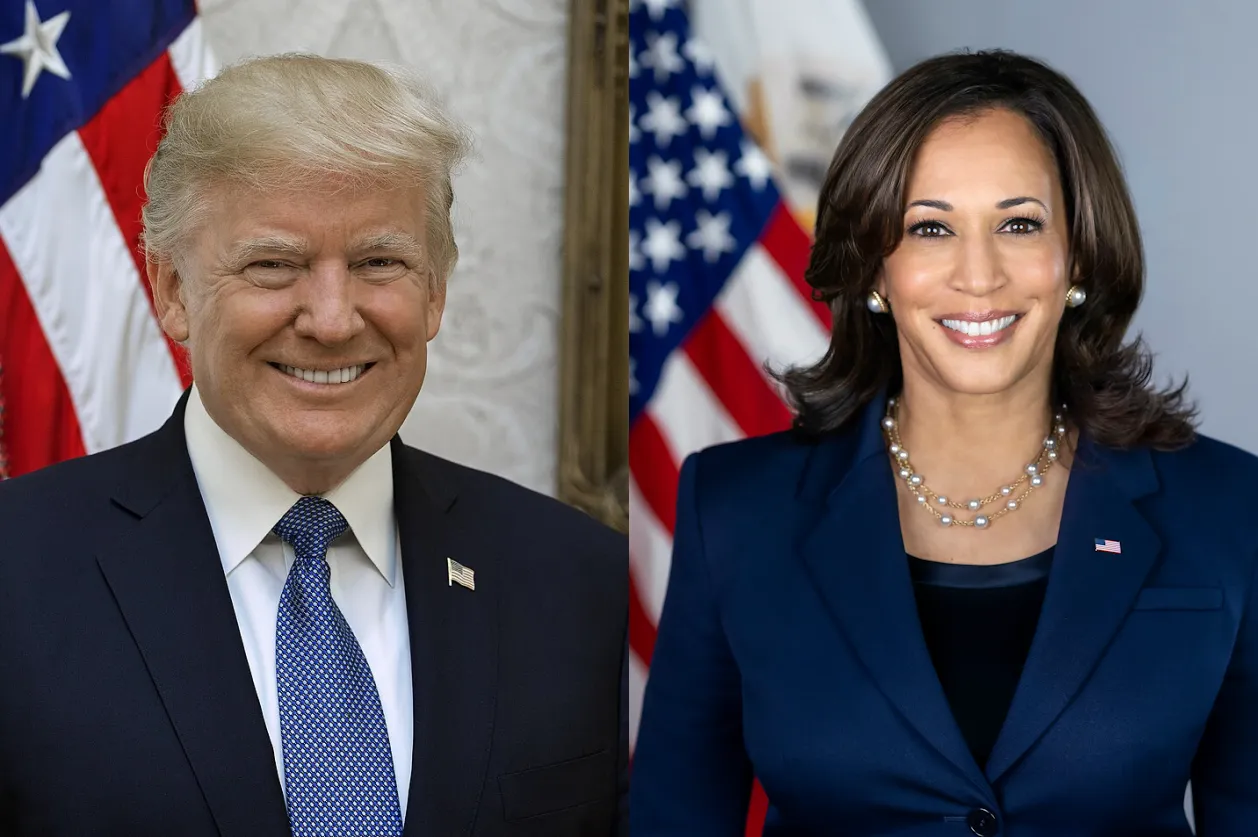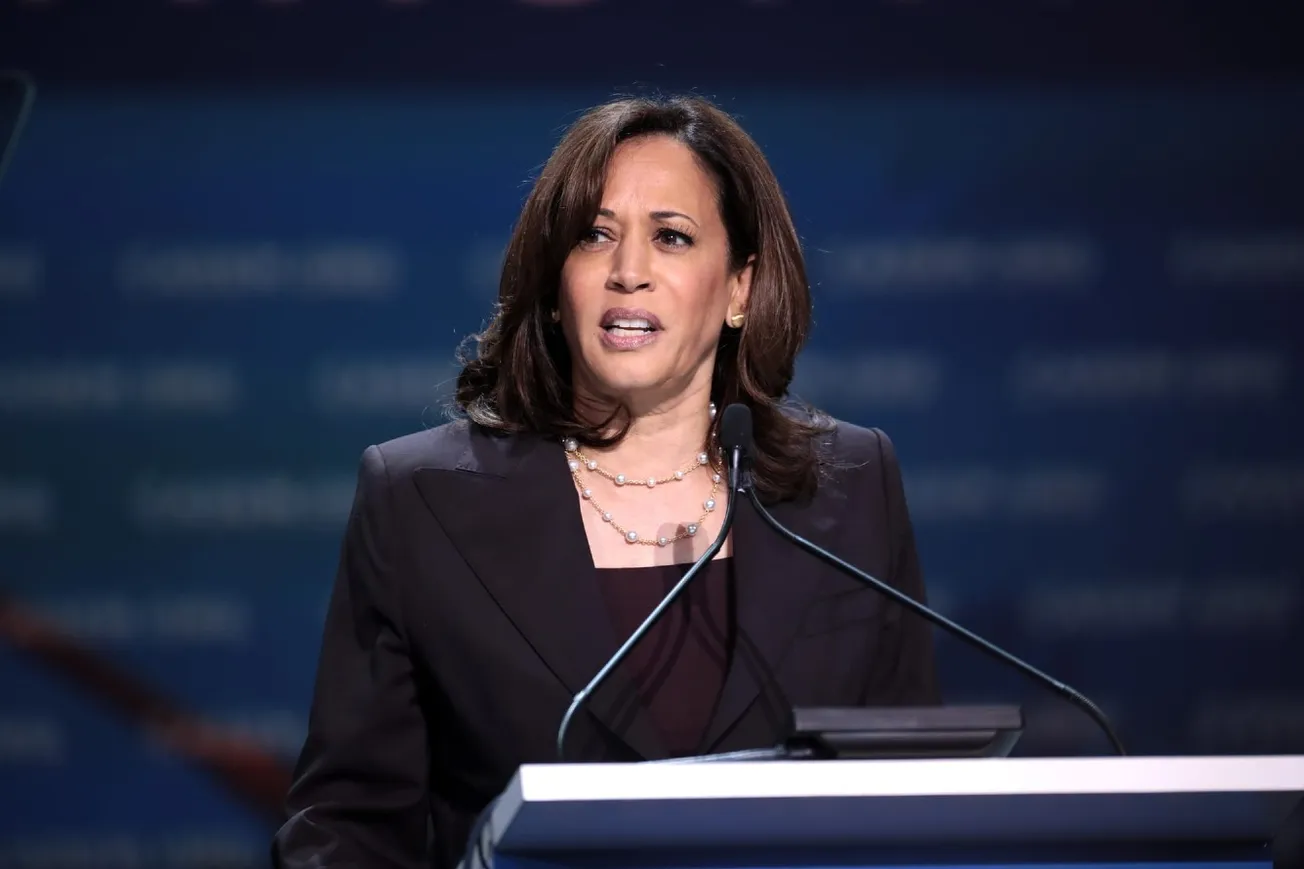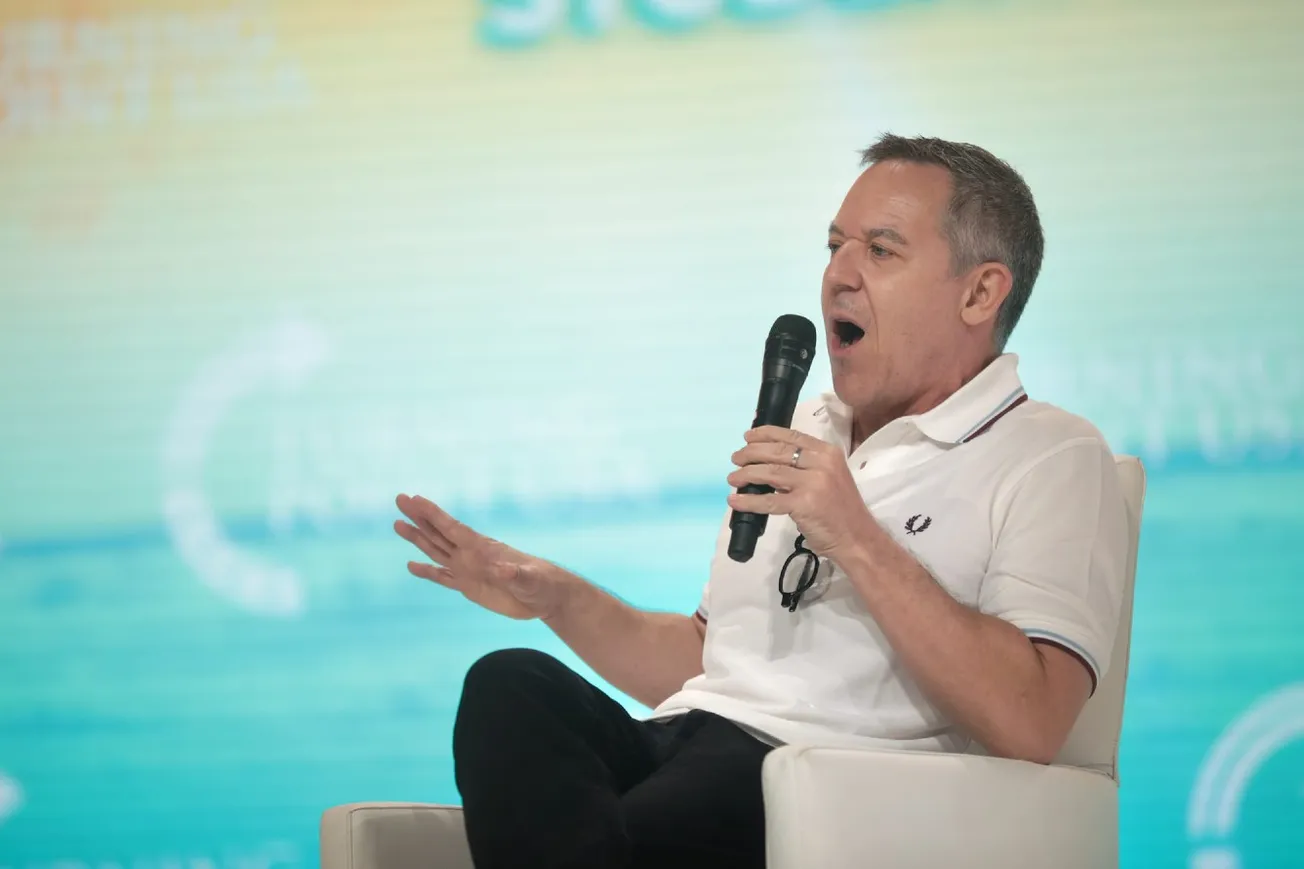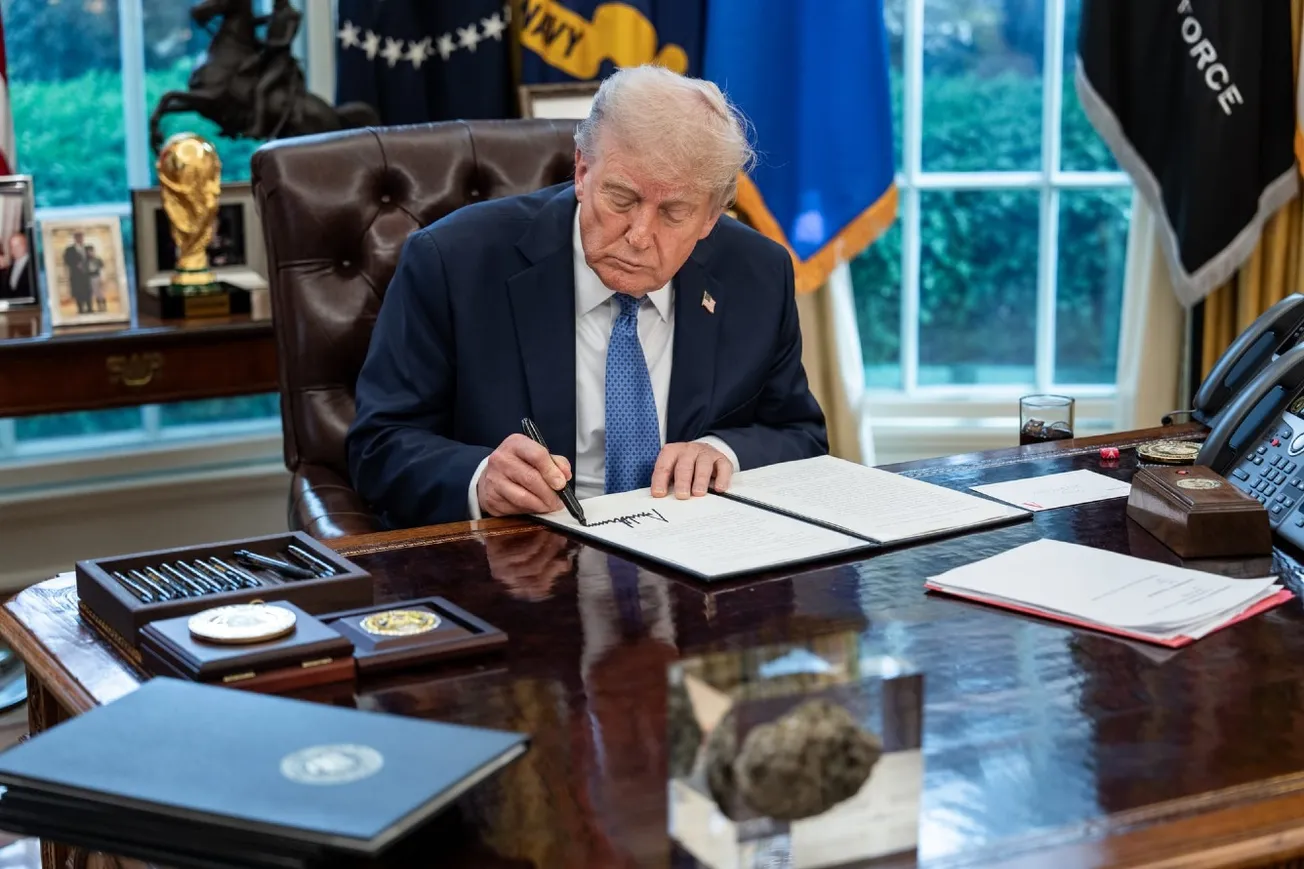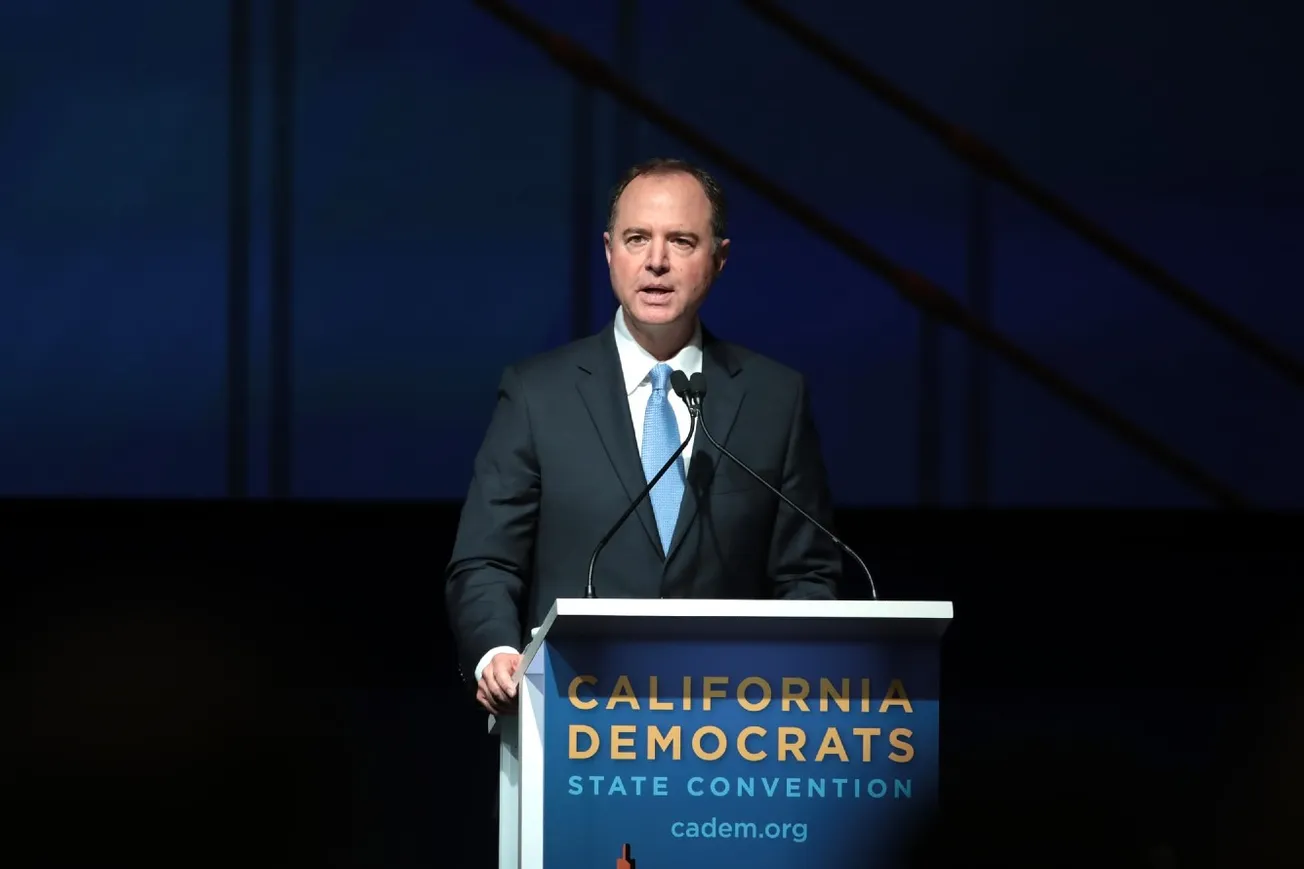Now that the Democratic Party officials have decided that Vice President Kamala Harris, and not primary-winner President Joe Biden or anyone else, will be their nominee, how will she fare against former President Donald Trump? Right now, the contest is a tossup, the latest I&I/TIPP Poll shows.
The data suggest that Harris might be enjoying an initial polling “honeymoon,” typical after a new face enters a race and voters haven’t had time to assess their candidacy. It was just two weeks ago that the Democratic National Committee elbowed Biden (who was badly flagging in the polls) out of the race and replaced him with his own vice president, Harris, as the party’s candidate.
Responding to this abrupt shift, I&I/TIPP queried voters after the shocking changes. The main question: “If the presidential election were held today, and the following were the candidates, for whom would you vote?”
In the head-to-head poll, 46% of all respondents answered “Kamala Harris,” and 45% answered “Donald Trump.” The margin of error in the poll is +/-2.9 percentage points, making the presidential race at this point too close to call, at least by the numbers. The online national poll was taken from among 1,326 registered voters from July 31-Aug. 2.
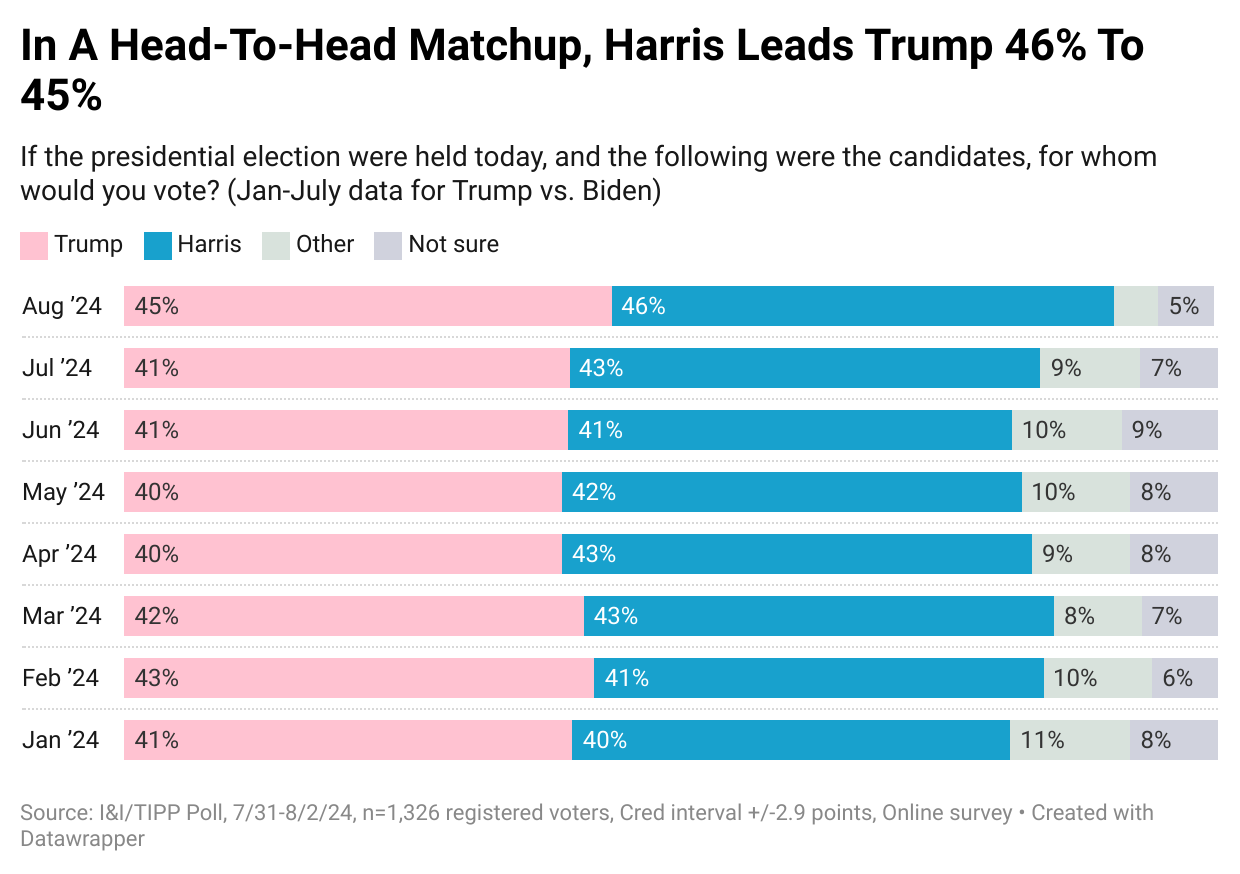
Among Republicans, 90% said they would vote for Trump, while 5% said they would go for Harris, 1% said they would vote for someone “other,” and 3% said they weren’t sure.
Democrats were fairly similar by percentage, but of course with the preferences flipped: 92% said they would vote for Harris, while 3% said they’d pull the lever for Trump. Of those remaining, 2% said they would vote for someone else entirely, while 2% also said they weren’t sure.
But Trump maintains his slight 41% to 38% lead among independents, the traditional swing vote in national elections. The 21% of independents who say they either will vote for someone other than the two major candidates and the 11% who are “not sure” make up a vote-rich battleground for both parties.
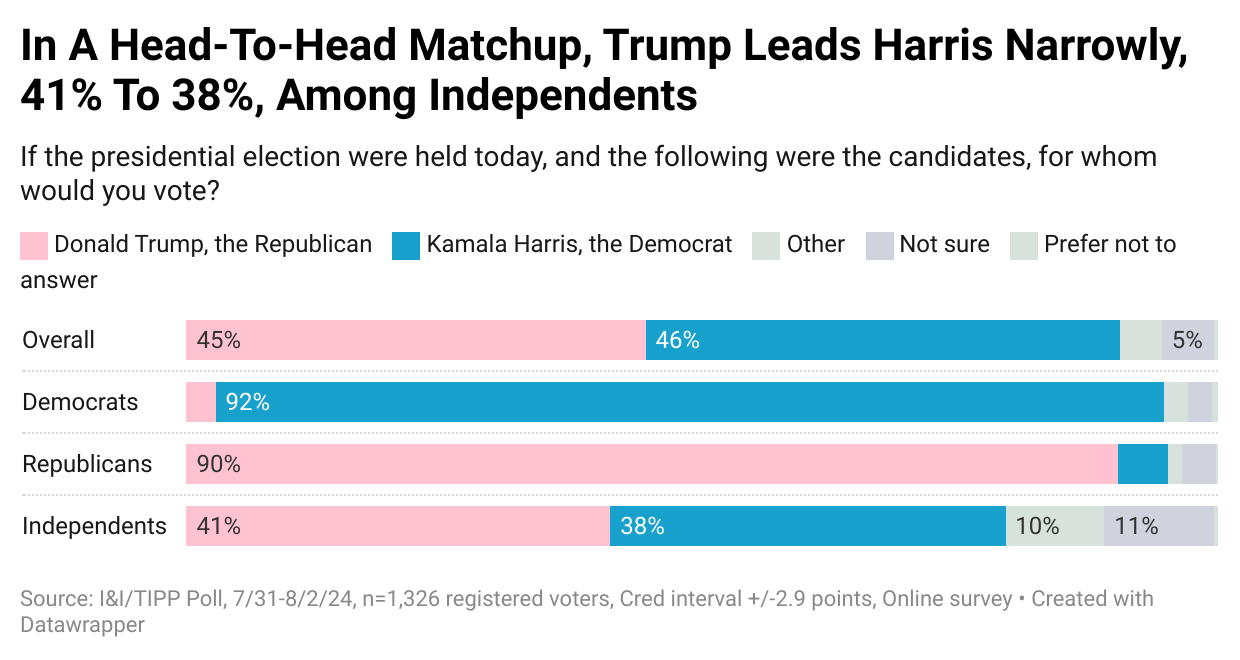
The I&I/TIPP Poll followed up its head-to-head question with one about presidential preference, this time with third-party and independent candidates also tossed in.
There, Trump again trails Harris slightly, but still within the margin of error. But the initial early excitement over the potential impact of third-party candidates seems to have worn off. Attorney/activist Robert F. Kennedy Jr., who garnered 12% of the vote as recently as May, now has slipped to just 7% support. None of the others, which include author/activist/professor Cornel West and Green Party candidate Jill Stein, have significantly raised their numbers.
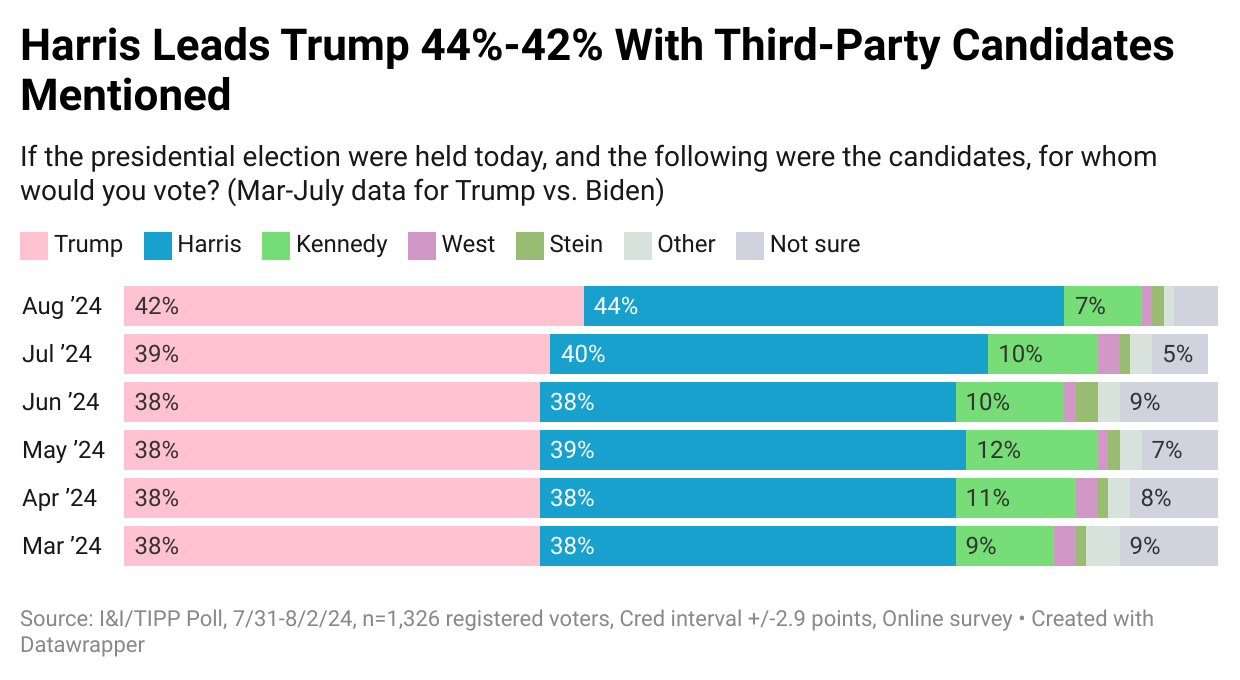
Things tighten up, however, when you look at how states are voting. This is important since it’s the electoral vote, not the direct popular vote, that determines who wins the election. The 535 electoral votes are apportioned to states based on their representation in Congress.
That’s why the so-called battleground or swing states will be bitterly contested. Once largely dominated by Democrats, these economically troubled states have swung sharply toward the Republicans in recent years as the party took on a more populist tinge and Democrats went “woke.”
In these states, Trump and Harris are all knotted up at 47% apiece when rounded (Trump 47.4%, Harris 47.0%). It’s fair to say that whoever wins the electoral vote-rich swing states is highly likely also to win the entire election, as Trump did in 2016 and almost did in 2020, despite losing the popular vote both times.
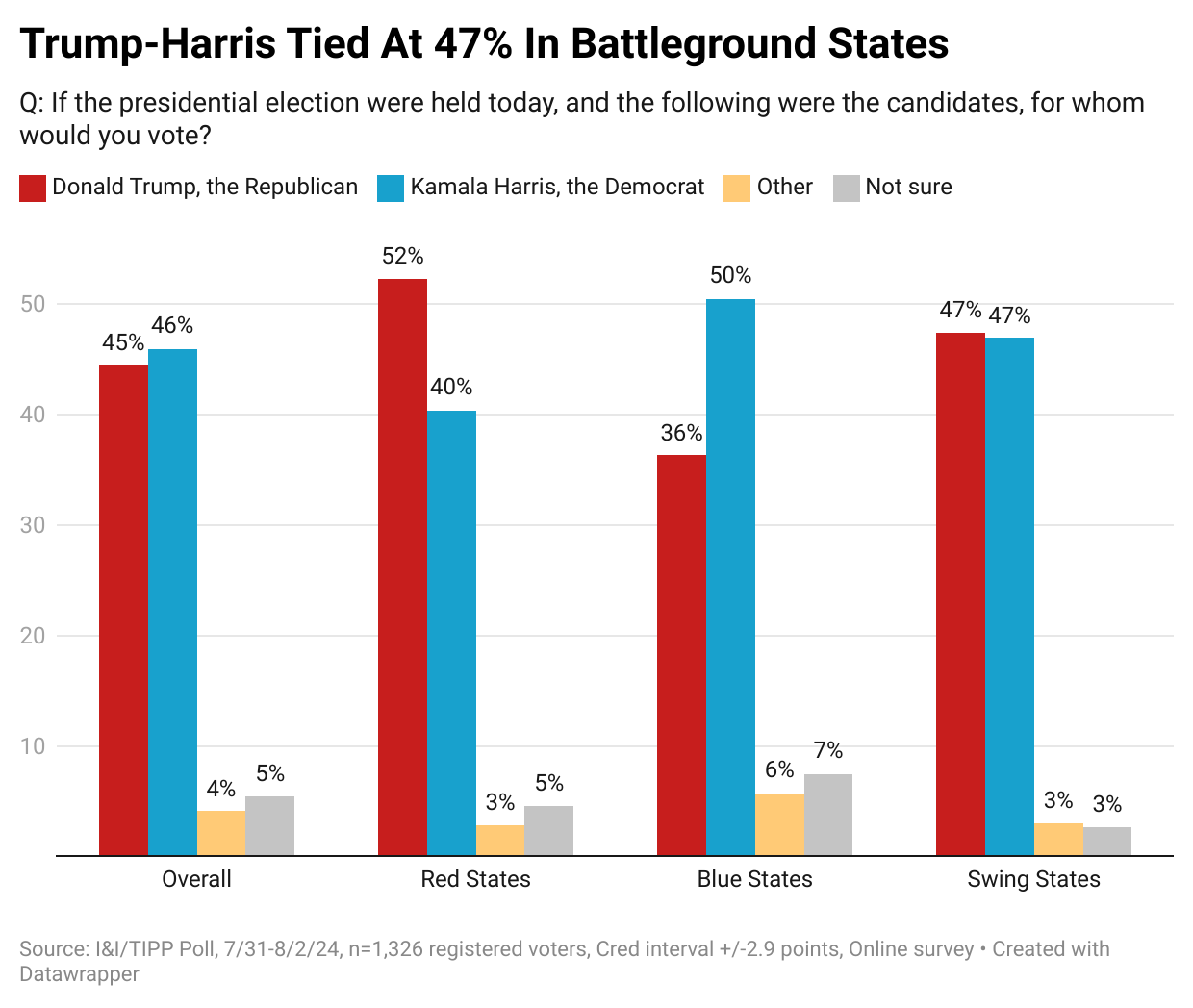
But there remain other measures to indicate how the vote might eventually turn out, measures that point to the underlying strength of the parties’ candidates.
The simplest of these measures is to ask people, regardless of the candidate they support, who do they think will win the election? While this seems like an off-the-wall question, it correlates fairly strongly with outcomes.
By this measure, it’s not close. Trump wins by a big margin, 44% to 38%.
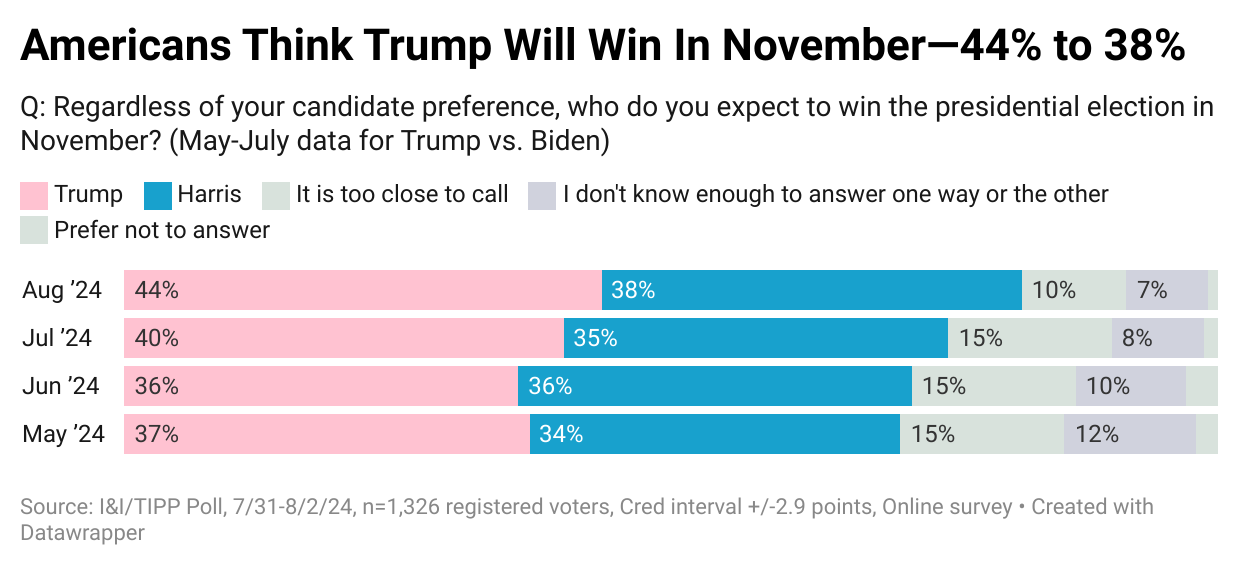
Note also that the share of voters who think Trump will win has been rising since the question was first asked in May. While the switch from Biden to Harris seems to have boosted the Democratic share a bit, from 38% for Harris from 35% last month for Biden, a hefty 44% now think Trump will win. That’s compared to just 36% as recently as June.
In a similar vein, I&I/TIPP asked voters whom they believed their neighbors would vote for, another indicator perhaps of quiet support at the local level. There again, Trump has a significant nine-percentage-point lead.
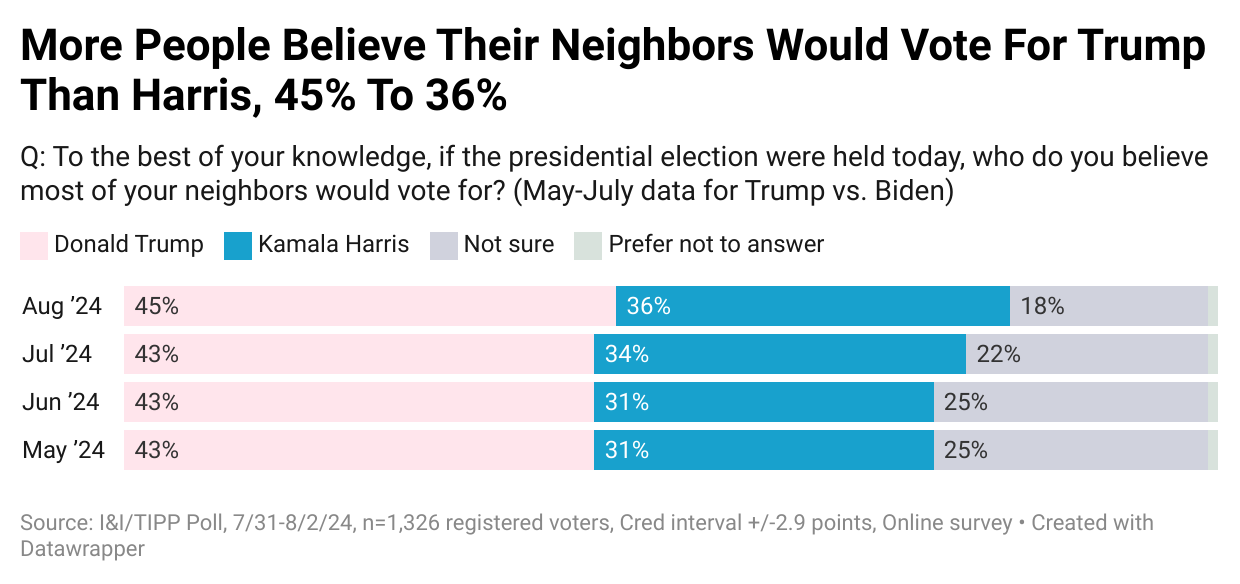
There are of course other metrics to keep an eye on. One is minority voters, who seem to be undergoing something of a shift in thinking. Granted, it’s not a massive change, but big changes taking place at the margins of the voting public can have an impact.
Overall, minority voters (blacks and Hispanics) prefer Harris to Trump, 65%-25%.
But within those two groupings, there are differences. Among African Americans, 74% prefer Harris, to 18% for Trump. Among Hispanics, a 52% majority back Harris, but a hefty 36% say they’ll vote Trump.
Even so, Trump has made significant headway since 2020 with minorities. Exit polls from 2020 show Trump won just 12% of the black vote and 32% of the Hispanic vote, compared to his current 18% support among African-American voters and 36% among Hispanics.
Also, Trump’s strength grows depending on a voter’s age.
Right now, those in the 18-24 year age group, many first-time voters, favor Harris over Trump 53% to 33%, while those in the 25-44 year range back Harris 47% to Trump’s 42%. For those 45 to 64 years old, the margin tightens further, to 46% Harris, 42% Trump. Only among those over 65 does Trump have a sizable lead of 11 percentage points: 52% Trump, 41% Harris.
This is significant, since in general, the older the person, the more likely he or she is to vote. In 2020, for instance, those 65 and older had a 72% voter turnout, compared to turnout of less than half of those 18 to 24, 55% for those 25 to 44, 65.5% for those 45 to 64, and 61% on average for all voters.
Will Harris, despite not winning any primary votes at all, win the election? It’s not clear.
However, as Trafalgar Group pollster Robert Cahaly recently told Just The News’ John Solomon, Harris’ poll rise has been aided by a “group of people that are building it up. The media is letting her hide from her record, letting her literally do more flip flops than John Kerry and not reporting it, and also a lot of the media and establishment polling companies.”
Others say the sudden switch of candidates by the Democrats so late in the election cycle might have a negative impact on Trump and his followers, especially if they don’t focus their efforts on Harris’ unique electoral vulnerabilities: A past far-left political record, and a tendency toward serving up “word salads” when speaking without a prepared text.
“(T)hey don’t have one or two years, they only have 90 days and she’s not going to be allowed, as was Biden not allowed in 2022, to do anything other than tele-prompted set speeches in front of receptive audiences,” Hoover Institute senior fellow Victor Davis Hanson told Fox Business. “They don’t have time to go down all of these cul-de-sacs about ethnic background or cackling, all that. They got to get right to the point and that’s to draw out on all these things they said.”
I&I/TIPP publishes timely, unique, and informative data each month on topics of public interest. TIPP’s reputation for polling excellence comes from being the most accurate pollster for the past five presidential elections.
Terry Jones is an editor of Issues & Insights. His four decades of journalism experience include serving as national issues editor, economics editor, and editorial page editor for Investor’s Business Daily.
Want to dig deeper? Download crosstabs from our store for a fee!
Talent On Loan From God
Our 2020 Performance As Rated By Washington Post
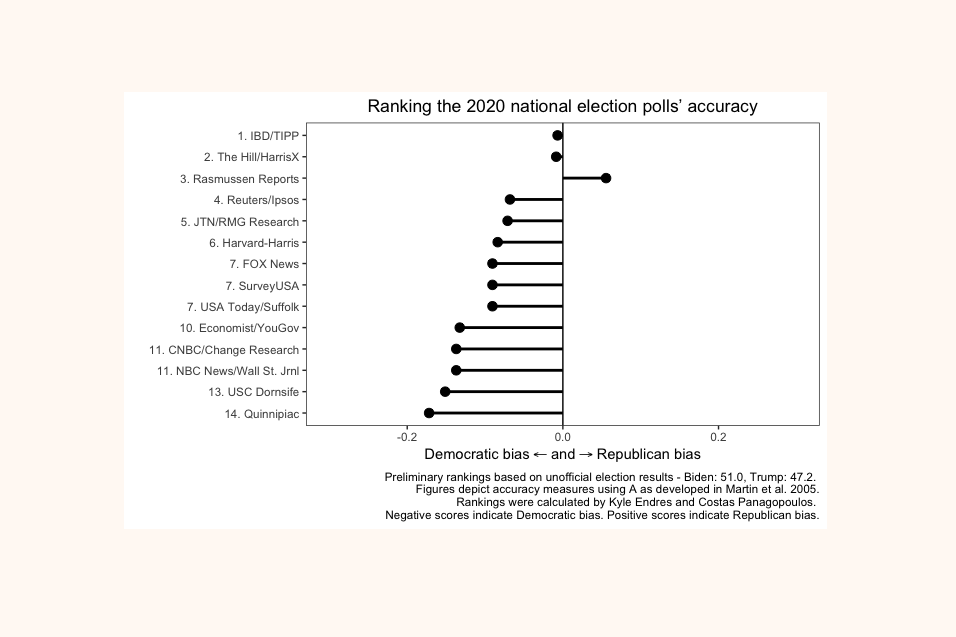
Our 2016 Performance - Unafraid, Correct Trump Call Among 11 Pollsters
"The gold standard going forward." — The Hill
"IBD/TIPP tracking poll was the only major national poll in November to give Trump the lead in a race including third-party candidates." — USA Today
"Investor's Business Daily was the best poll." — Bill O'Reilly, The O'Reilly Factor
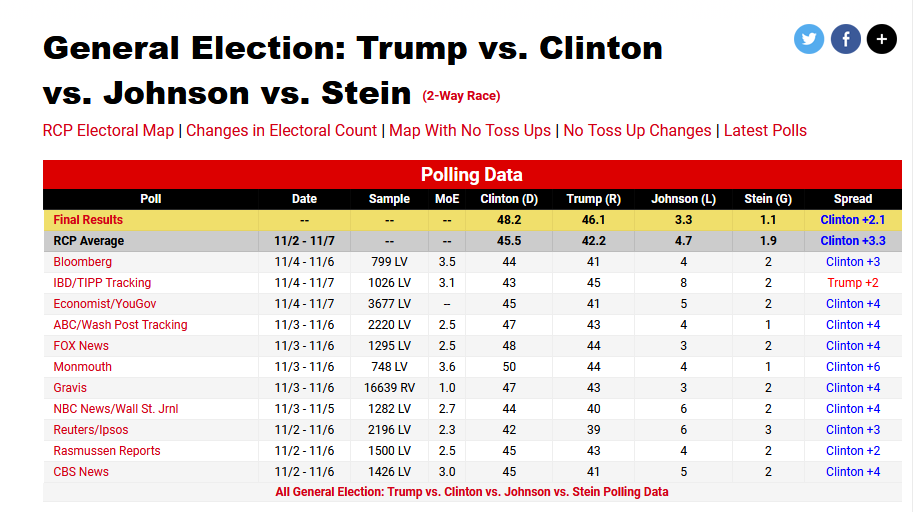
Our 2012 Performance As Rated By The New York Times
